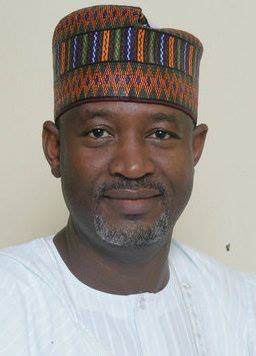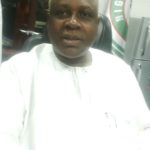
Whereas aviation parastatals are insisting that airlines must pay their outstanding debts for services rendered, the airlines are contending that this is a ploy to force them out of business.
Over the years, there have always been arguments over the debts owed by domestic airlines to aviation agencies, including the Nigeria Civil Aviation Authority (NCAA), the Nigeria Airspace Management Agency (NAMA) and the Federal Airports Authority of Nigeria (FAAN). Imbedded in every ticket fare is a five percent charge that goes to NCAA, which the agency shares with other parastatals like the Accident Investigation Bureau (AIB), the Nigeria College of Aviation Technology (NCAT), Zaria and the Nigeria Meteorological Agency (NIMET).
Airlines all over the world, owe debts because their operations are a continuum; so they always pay in arrears. But because in Nigeria, airlines and the aviation agencies are always in dogged fight over the debts, the agencies adopted a pay as you go system to curb the mounting debts of airlines. The total debts the agencies claim the airlines owed them amount to about N40.08 billion and some of these debts are owed by airlines that have seized to exist.
Debts
It has become a trend over the years, the cat-mouse relationship between the aviation parastatals and the domestic carriers. There was a time the airlines would owe and when they agencies want to withdraw their service, the operators would call the Presidency or the Minister of Aviation, who would intervene and allow the airlines to continue operation. It was the period the federal government used to give the agencies subvention and fund most of their projects. But these days, agencies like NAMA and FAAN depend on the internally generated revenues to pay their workers and according to the new policy they must remit 25 percent of their earning to the federation account, so the jamboree has inevitably come to an end. The agencies ferociously demand for their pay, but the airlines are seemingly still under the hangover of the past years and still believe that government money is nobody’s money, so some of them try to browbeat the agencies and allow the debts to continue to pile up.
So the agencies complain that the airlines owe them in Nigeria but those that operate the West Coast and long haul, promptly pay their charges in their international operation. Sometimes FAAN use the unions to obstruct the operations of the airlines before they would pay some of their debts; sometimes NAMA would refuse to give the indebted airline startup of their flights.
The Secretary of Aviation Round Table (ART), Group Captain John Ojikutu (retd) told THISDAY he could not understand why Nigerian airlines do not pay their charges to the aviation agencies while they generate revenues everyday.
“Domestic airlines are collecting cash everyday. They sell tickets not on credit but on cash and carry to passengers everyday. The domestic airlines should pay for the services that are being given to them. Domestic airlines are not paying government tax. They are also in excess of salary arrears. So the question is, what do they do with their money?” Ojikutu asked.
With the pay as you go strategy some of the charges are paid in advance by the airlines like the passenger service charge (PSC) that is paid to FAAN, but there are other charges that cannot be paid that way. Landing and parking charges accrue as airlines carry out their daily services and land and take off from various airports that are not their operational base.
NCAA argues that the monies that the airlines refuse to pay which over time piles up as huge debts are the charges that are built into the tickets for the airlines to collect them on behalf of the agency; that the five percent charge is not part of the airlines fares, so they should not find it difficult separating such charges from their revenues.
For Ojikutu, airlines should increase airfares so that they would be able to pay their charges and make profits. But the airlines know that there is a limit they can increase fares, especially now the average Nigerian’s finances have been eroded by the economic downturn. Ojikutu argues that there should be no ceiling to the price of tickets and that NCAA should not interfere in ticket pricing by airlines.
“If government has liberalised the market there should not be any control to the sale of tickets. Government should not control how much airlines charge for their ticket. Both government and the airlines seem not to understand somehow, because there are certain things that government is doing, which the airlines are not complaining about. How can you be doing business and government is controlling your price for you?” Ojikutu queried.
Contesting the Charges
Nigerian operators are obliged to pay their debts and by now they must get used to the fact that time has gone when they can drop names of persons in the Presidency or call on the Minister to intervene on their behalf. Many airlines are really willing to be paying these debts but they contest some of the debts. The airlines say there are too many charges; that if they are to transfer the charges to the passengers the fares would be outrageous and beyond the financial capacity of many Nigerians to pay for air ticket. This will deplete the passenger traffic and invariably force some airlines out of business. It has to be noted also that less than one percent of Nigerians travel by air. With a population of about 180 million, Nigerians that travel by air on domestic destinations are not up to 18 million and even when combined with those that travel overseas is still less than 18 million. So, high fares will further reduce the passenger traffic.
Dana Air Accountable Manager, Obi Mbanuzuo noted: “Many aviation parastatals erroneously believe there is a lot of money in airline business. There is really high turnover, but I can say it authoritatively that no airline in Nigeria is making any profit. It is because of the high charges. Some of them are double charges. We pay to our regulator (NCAA) twice but in other countries it is only one payment. Airlines pay charges to the regulator and they pay for any other thing they want to do with the agency. Airlines pay for issuance of pilots’ licences, if the regulator wants to inspect aircraft we pay for it. Then we pay the so-called five percent. It is however true we collect this money on their behalf but it also adds to the cost of the ticket.
“It is the same thing with air navigation. The Nigerian Airspace Management Agency (NAMA) collect charges for en-route navigation, terminal navigation charges; yet NAMA still collects from the five percent charge. What we can say is that government should look at these charges with a view of reviewing them downwards; they should also look at other countries to see how they are doing it.”
The airlines also argue that some of the agencies arbitrarily allocate figures to airlines as debts without comprehensive notation of the charges that accrued the debts. Airlines must be shown how they incurred the debts they are asked to pay; for example, when their flight landed at which airport, at which time and day and which destination. Some of the agencies are yet to automate their systems and that explains why they bring in conflicting figures from one airport to another. Besides, the airlines said some of the charges leveled on them do not get NCAA approval.
Old Debts
THISDAY learnt that significant part of the N40.08billion debts owed the agencies by domestic airlines accrue from operators that had seized to exist; that currently agencies charge pay as you go and so far the airlines are keeping to the new terms.
Some airlines are however requesting that their old debts should be spread over a period of time so that as they pay the current charges they would also be paying the old ones. Some years ago the then Minister of Aviation, Mrs. Fidelia Njeze reconciled airlines debts with the agencies and spread them over a period of time. Industry observers argue that this would give the airlines a breathing space.
Obsolete Infrastructure
While insisting that airlines should pay their debts, the operators argue that the operational environment is very harsh and their aircraft are grossly underutilised. The Chairman of Airline Operators of Nigeria (AON), Captain Nogie Meggison said airlines do not maximise the use of their airplanes because most of the airports do not have airfield lighting so they cannot operate to such airports after 6:00 pm; that the airlines would generate more money and pay their charges and also make profits if an airline can operate its aircraft for at least 12 hours in a day. But utilisation of aircraft is average of six to seven hours, which is not even good for the health of the equipment that ought to be flogged about 18 hours a day.
In a recent statement issued by AON, Meggison warned aviation agencies not to jeorpardise the airlines in their bid to collect old debts owed by the operators, some of which have seized to exist.
AON said the debt collection drive may run the airlines out of business as they had also run many airlines out of business in the past from ridiculous billings that are arbitrary put together against the operators.
“We strongly decry the on-going action by the various government agencies in the aviation sector whereby they threaten to deny airlines services for their operations or completely ground them, which is likely to force airlines out of business. Because of the economic hard times of today, airlines have become a soft target and are seen as a cash cow for everyone else to prey on easily,” Meggison said.
He noted that without the airlines there would be no aviation in the first place; that it is because of the airlines that airports are built and managed by FAAN.
“It is because of the airlines that an agency like NAMA exists to provide navigational services. The airlines also are the reason why we have catering companies; ground services providers, fuel marketers and other ancillary service providers in and around the airport.
“The airlines thereby provide jobs for all and sundry. And this means everybody else in the industry is making profit and surviving out of the airlines that are perpetually being undermined and milked dry on daily basis. And on top of all this, airlines still have to pay multiple charges and double taxation of all kinds to various government organs and are forced to pay for several inefficiencies and in some cases for services that are not provided without value for money and with no one coming to their aid,” Meggison said.
With the new realities, airlines have to realise that the agencies are there for business; they are no longer pampered by government, which ironically still interfere in their activities. So the airlines must cue themselves for serious business by not believing that they can forgo paying their debts.
THISDAY






